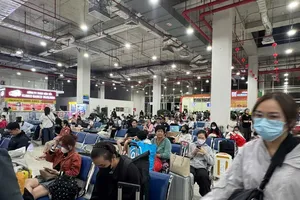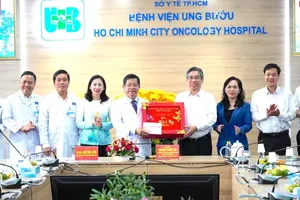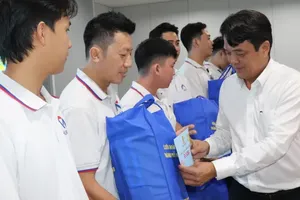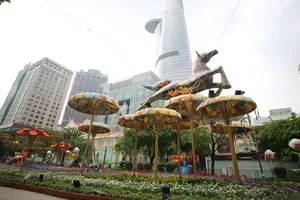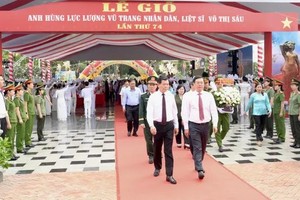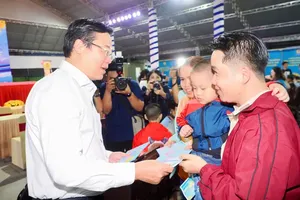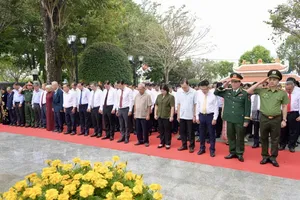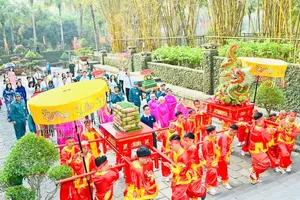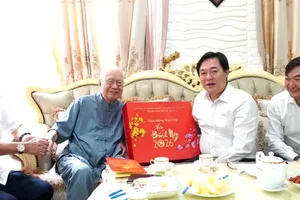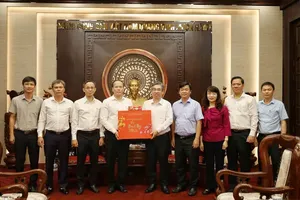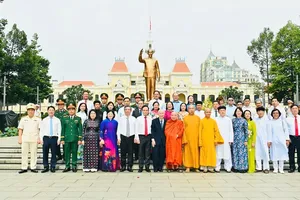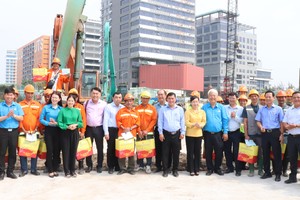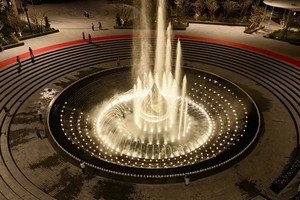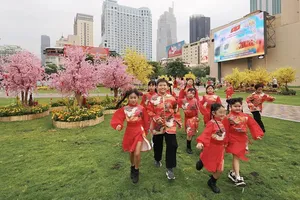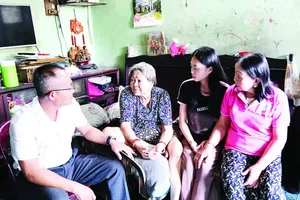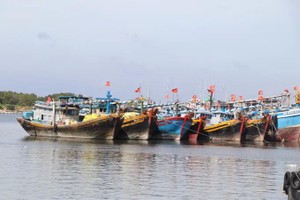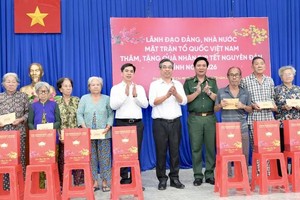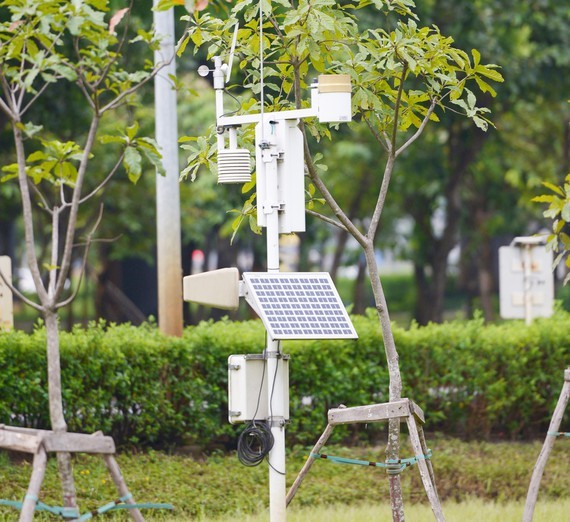
Dr. Nguyen Thanh Trung, Director of Saigon Computer Technology Co. Ltd. (CINOTEC), informed that his company has developed uberRac – the software to manage environment sanitation via waste services. Users can download and install this app on their smart device to interact with waste services like registering for waste collection, paying fees, monitoring garbage truck routes, registering for bulky waste collection, giving feedback on waste services.
From this June, CINOTEC is cooperating with the IT Center of the HCMC Natural Resources and Environment Department to pilot the app among private waste collectors in District 7 in order to improve the sanitation for residential areas there.
Vietnam Informatic and Mapping Corp. shared that it is developing a digital map for solid waste collection in HCMC, with features like monitoring garbage truck routes, velocity, and status, as well as trash collection points and waste treatment stations.
Such software like those is expected to revolutionize environment management in HCMC. When linked, these software pieces will share databases on waste owners, waste transporters, waste treatment organizations, and waste amounts for the sake of convenient management of the authorities. This will minimize the case that waste is transported to wrong locations or poorly handled.
Dean of the Environment Faculty in Van Lang University Dr. Le Thi Kim Oanh commented that the use of technologies in solid waste treatment brings a lot of benefits. Through apps, garbage trucks can identify the shortest route to save their cost. Through advanced composting technology, better products can be created from waste. Through high technologies, landfills and incinerators can precisely report the concentration of gases released into the air. A chip installed into public trash cans can notify waste collectors of the necessary time to take waste away.
Head of the IT Center of the HCMC Natural Resources and Environment Department Bui Hong Son agreed that the use of IT in his field is unavoidable and beneficial for smoother operation and a cleaner city. His department will apply the operation model of Open Geospatial Consortium as a foundation for natural resources – environment database sharing. Via the shared databases, state agencies, private businesses, and individuals can easily develop practical software for waste management.
It is worth saying that HCMC People’s Committee has released the digital transformation plan for the natural resources – environment field until 2025 with a direction to 2030.
The city hopes that by 2030, many public services can go online, all documents for administrative procedures at city-level are handled online (except for state secret matters), all observation and measurement equipment of the environment field can produce digital data, and 100 percent of employees in the environment field are fully equipped with necessary digital skills, all thanks to the establishment of a data platform for a smart city to serve the development of a digital government, economy.
